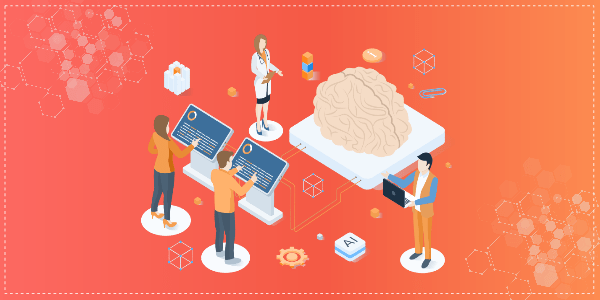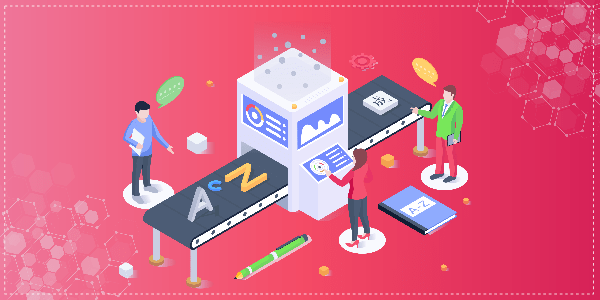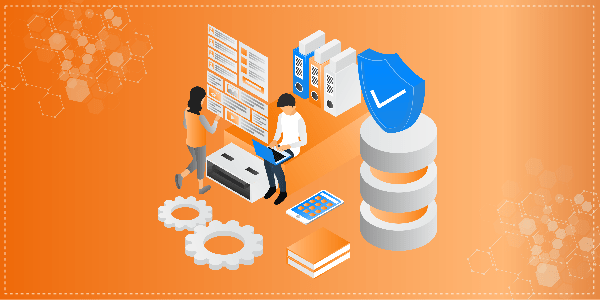
What is Cloud-based Security and How is it Benefitting Data-driven Organizations?
Cloud computing is one of the trendiest new world technologies. It has already hit several milestones and is regularly shaping the way we experience technology in our world. As cloud infrastructure grows, cloud security is also becoming an important part of today’s businesses.
Organizations that employ cloud infrastructure or services, whether it's a software as a service (SaaS), platform as a service (PaaS), or infrastructure as a service (IaaS), have to face numerous security concerns. The distributed and dynamic nature of cloud computing requires special treatment when it comes to data security. This is exactly why cloud-based security has emerged as the most powerful safety solution for data-driven organizations.
Cloud security’s powerful tools, backup abilities, and live monitoring instruments have made it a trending and reliable solution against data threats. This article will understand what cloud-based security is, how it manages threats, and what benefits it provides to data-driven organizations.
Let’s get started.
Cloud-Based Security
Cloud security is a cluster of policies, strategies, commands, procedures, and practices that protects the data, resources, and applications hosted on the cloud. Its robust set of features provides multiple levels of protection within the network infrastructure and can protect an organization against data loss, unauthorized access, and other types of cyber threats.
In times of persistent data threats, cloud security has become a crucial component of any cloud-based IT infrastructure strategy. It ensures data privacy and compliance around data stored in the cloud, and as a result, more and more organizations are turning to cloud-based security for their IT infrastructure.
Cloud security possesses controls and process improvements that reinforce the system, alert the organizations of forthcoming attacks, and immediately detect events when they occur. In addition, if there is a security breach or other network disaster, cloud security incorporates a business continuity plan and data backup plan that keep the systems running.

Therefore, we can say that cloud security is an umbrella term that includes several security aspects such as:
Access controlSecurity policy and strategies
Redundancy
Datacenter security
Cloud application security
Threat prevention, detection, and mitigation
User security
Network security
Regulatory compliance
Content security and others

What kind of threats can Cloud Security deal with?
Cloud security measures focus on achieving several goals that include enabling data recovery in the case of data loss, securing storage and networks from data theft, preventing data breaches due to human mistakes, and lessening the impact of data or system compromise.
Cloud-based security applications can deal with several threats. Some of them are:
Data breach and IP theft/ lossIdentity theft
Unauthorized access to mission-critical assets
Malware infections
DDoS attacks
Compliance violence, regulatory actions, and legal costs
Loss of control over actions of end-users
Financial damage and revenue losses
Breach of trust of stakeholders (customers/ partners/ employees, etc.) and diminished reputation
The Key Benefits of a Cloud Security Solution
Proactive threat management
security ensures that all your endpoints, such as access ports, devices, and applications, are fully secured. A cloud security system involves multiple tools like matured processes, visibility, tracking, continuous monitoring, built-in redundancies, customizability, flexibility, scalability, intelligence, etc., that make a responsible threat management system via a centralized management hub.
Cyber attacks such as DDoS (denial of service) continuously increase in numbers, magnitude, sophistication, and severity. Cloud security manages these types of cyber threats with its active monitoring and traffic disbursement facilities and constantly identifies, analyzes, and mitigates the power of such attacks.


Data security
One of the biggest advantages of a cloud-based security system is that it protects the data throughout its life cycle, i.e., creation to destruction. In addition, cloud security has security protocols and policies that keep the organization's data safe with encryption, strong passwords, multi-factor authentication, and tested backups.
High availability and support
Another elemental benefit of cloud security is that it keeps the business’ critical systems operating even if there are some single component failures.
Cloud systems have built-in redundancies and are backed by constant monitoring, geo-redundancy, and failover protocols that support your workforce during a crisis and make sure that the systems are running.
The CDNs have distributed global networks of edge servers that can deliver data in an optimized way, speed up the performance, and minimize server access. This combination can manage traffic surges that regular on-premises hardware solutions cannot. This way, the cloud security supports the company's digital assets and provides immediate solutions whenever required, including 24x7x365 live monitoring to address the issues.
Regulatory compliance
Every organization is looking for technology that offers data security and privacy and meets compliance to protect personal and financial data. At such times, cloud security systems ensure regulatory standards and industry-specific compliance requirements while providing enhanced security around the infrastructure.
Scalability
Scalable cloud computing solutions control fluctuations in demand and modify capacity, security coverage, and costs accordingly. For example, cloud-based systems expand the server capacity during high traffic periods to avoid server crashes, and when the demand is scaled back, the charges are automatically reduced.

Pay as you Go Model
And finally, cloud-based security systems are highly cost-effective as they are based on pay-only-for-what-you-consume kind of models and protect you from making any upfront investment. They are provided as a service, complete with managed infrastructure, and decrease the organization's overhead expenditure of security licensing and specialized hardware.
Final Thoughts
Security is the most critical element that maximizes the efficiency of cloud services and enhances the profits and sustainability of an organization.
As more data and applications are moving to the cloud, the IT world needs technology that provides security, governance, and compliance for the content stored in the cloud. In addition, there are concerns about highly sensitive corporate information and intellectual property being compromised due to unintended data leaks or sophisticated cyber attacks.
Cloud-based security helps organizations protect data and business information such as client orders, design blueprints, and financial records. It prevents data leaks and thefts and shields your assets while ensuring your customers’ trust. It is the security-first approach that can help organizations and their leaders safeguard themselves against data threats. It also helps organizations reap the benefits of cloud computing that include lower upfront expenses, ease of scaling, higher reliability, availability, and a novel way of working.
Recommended Articles

The impact of Machine Learning in Next-Gen Business
Machine Learning (ML) and Artificial Intelligence (AI) are two buzz words popular amongst numerous industries such as finance, automobile, IT, etc. One common facet amongst all these industries is business.
Read More

How Organizations Leverage Advanced Automation and Machine Learning?
Machine Learning (ML) and advanced automation are some of the latest and the most trending words in the global business world. These advanced technologies have allowed companies to reimagine their working culture and combine digital intelligence into their system for enhanced end-to-end processes.
Read More

How is Data Science shaping the future of Modern Data Warehousing?
With evolving technologies and the growing complexity of business requirements, data has become more critical than ever. Data forms the backbone for all business decisions. In the years to come, data science will become a core factor in empowering business users and offering them greater autonomy in work by unleashing the power of modern data warehouses.
Read More
Contact Us
Decision Minds
Leaders in Cloud Analytics, Multi-Cloud deployments, Business Intelligence and Digital Engineering.
Interested in doing a project with us? We would love to hear from you.
Enquiries: sales@decisionminds.com
Careers: career@decisionminds.com
2150 N First St, Suite 446,
San Jose, CA 95131
Phone: (408) 475-7873,
(408) 215-2031
Fax: (408) 709-1830, sales@decisionminds.com
1205 BMC Drive, Ste.122,
Cedar Park, TX 78613
Unit No G03, Ground Floor,
C2 Block, Brigade Tech Gardens,
Brookfield, Bengaluru,
Karnataka - 560037

